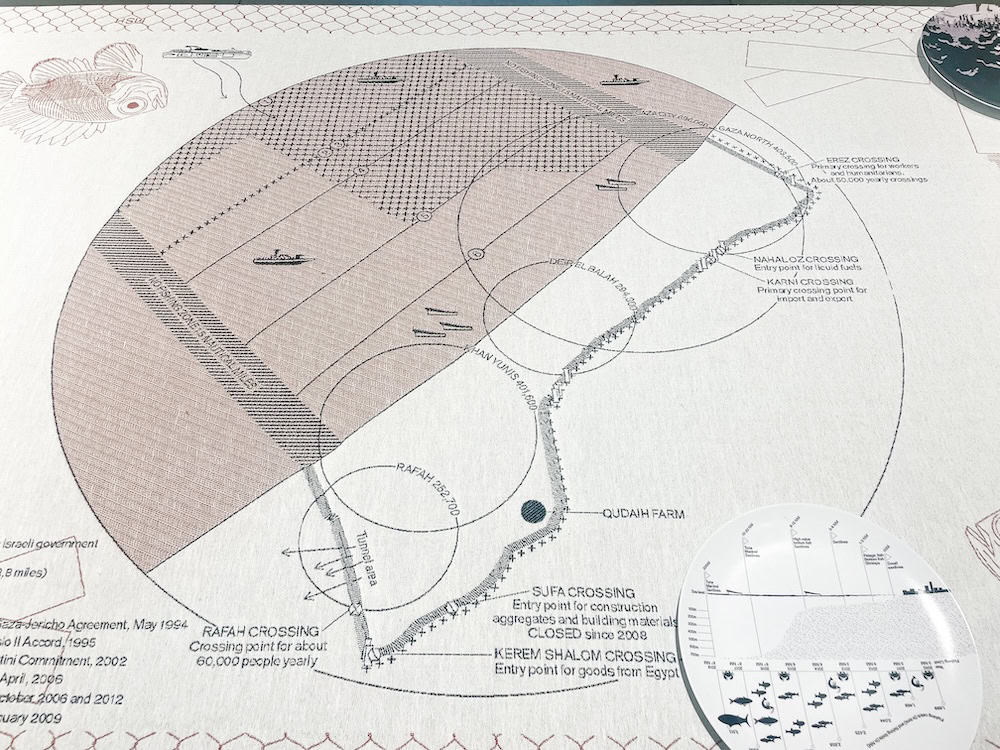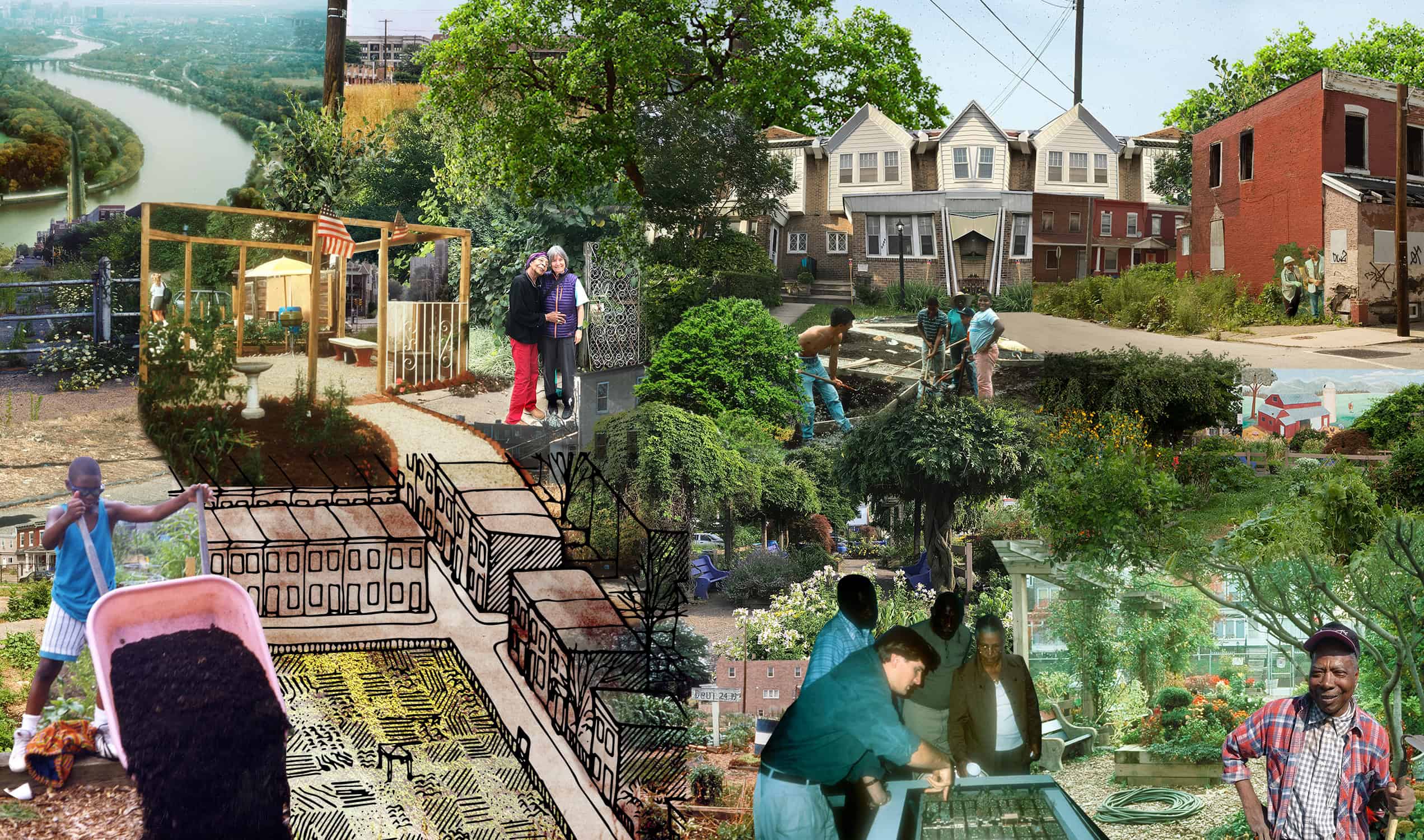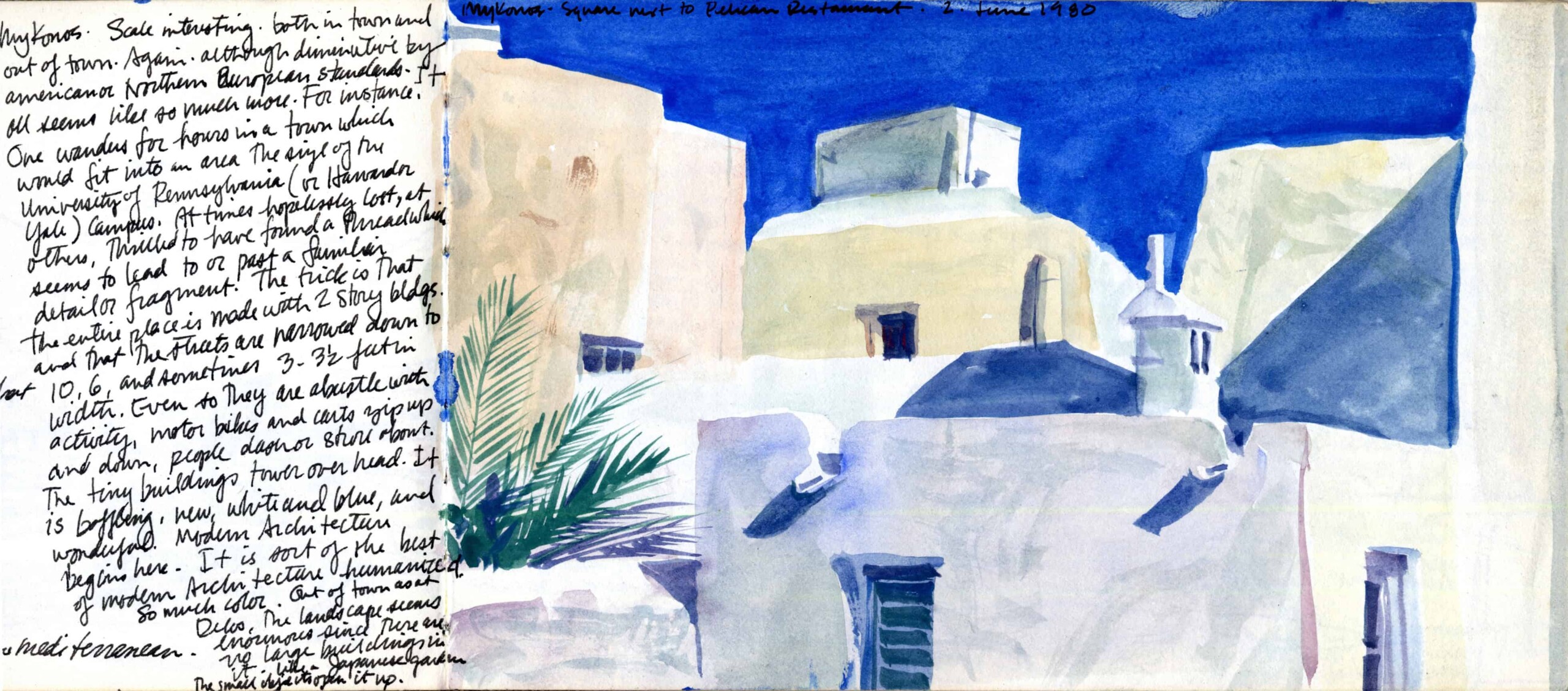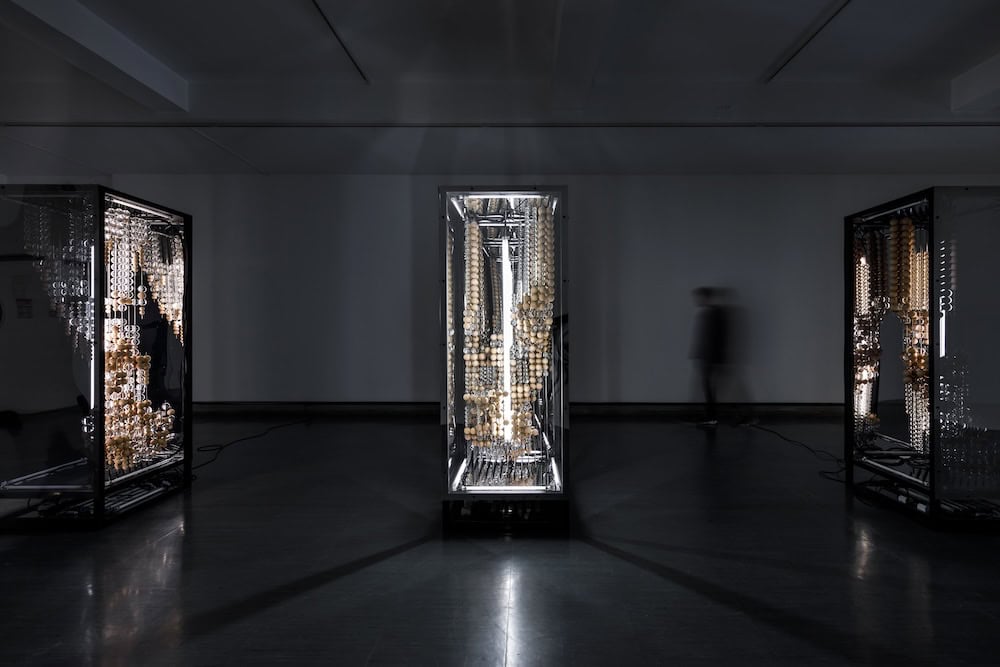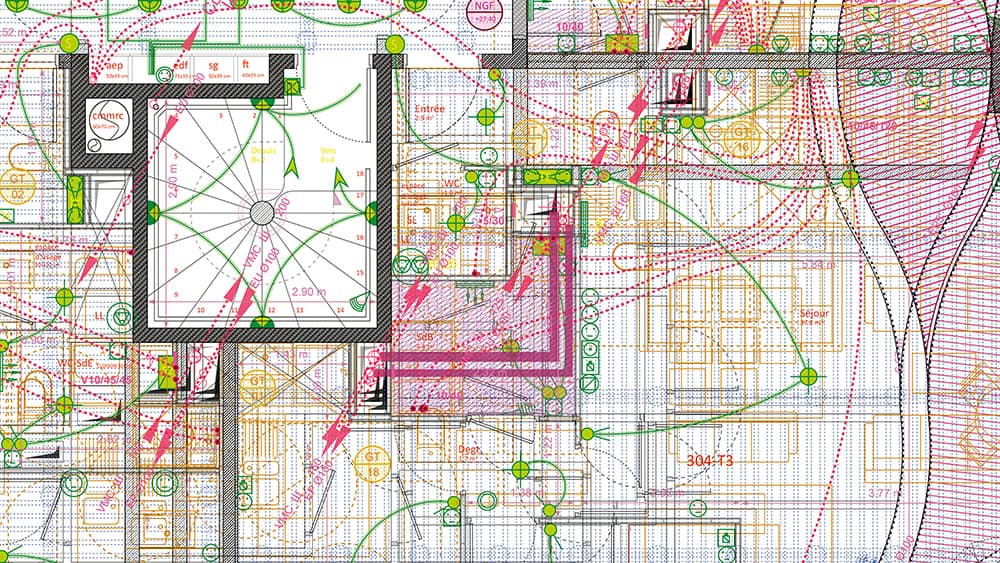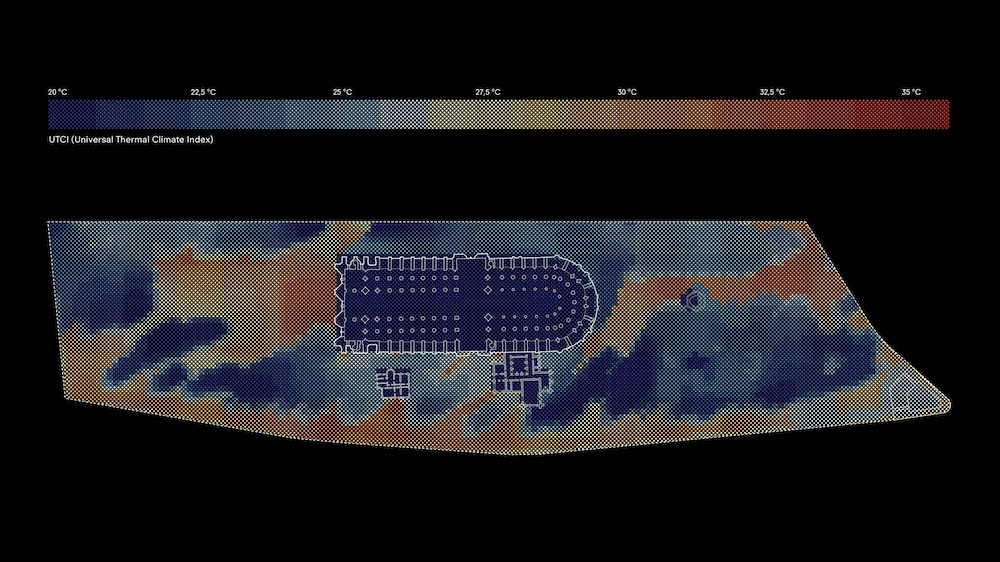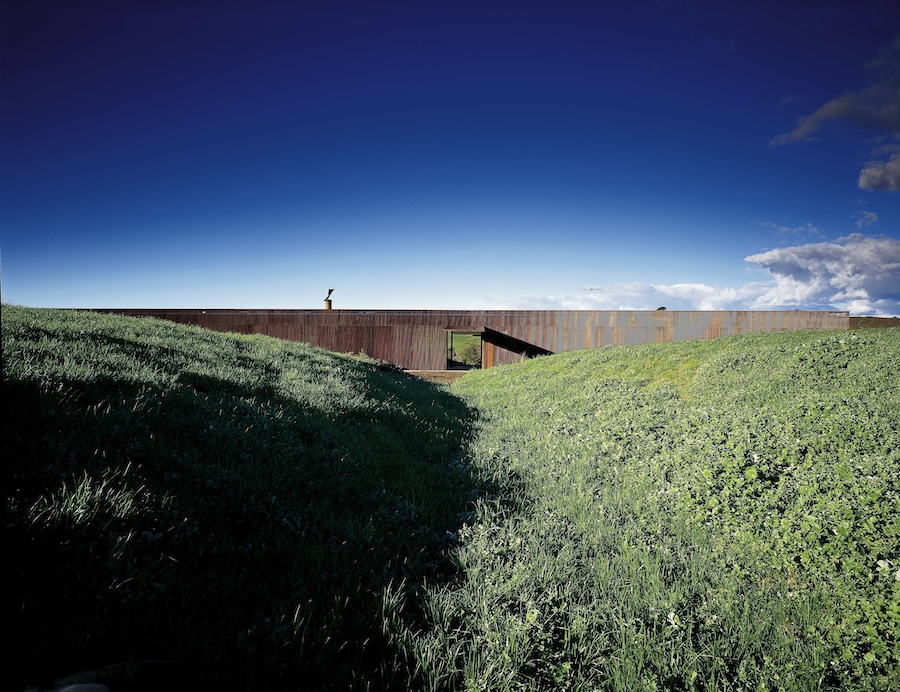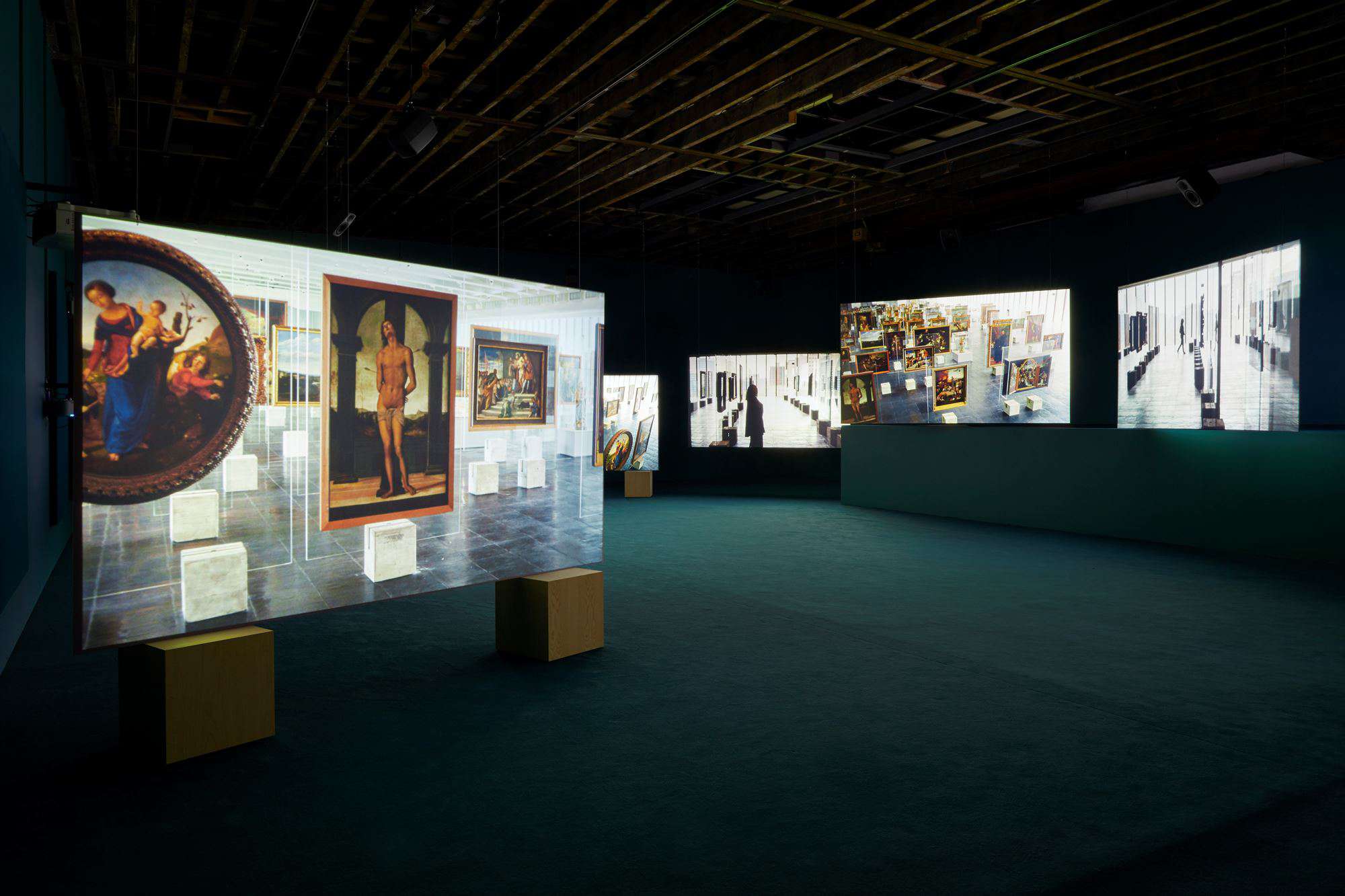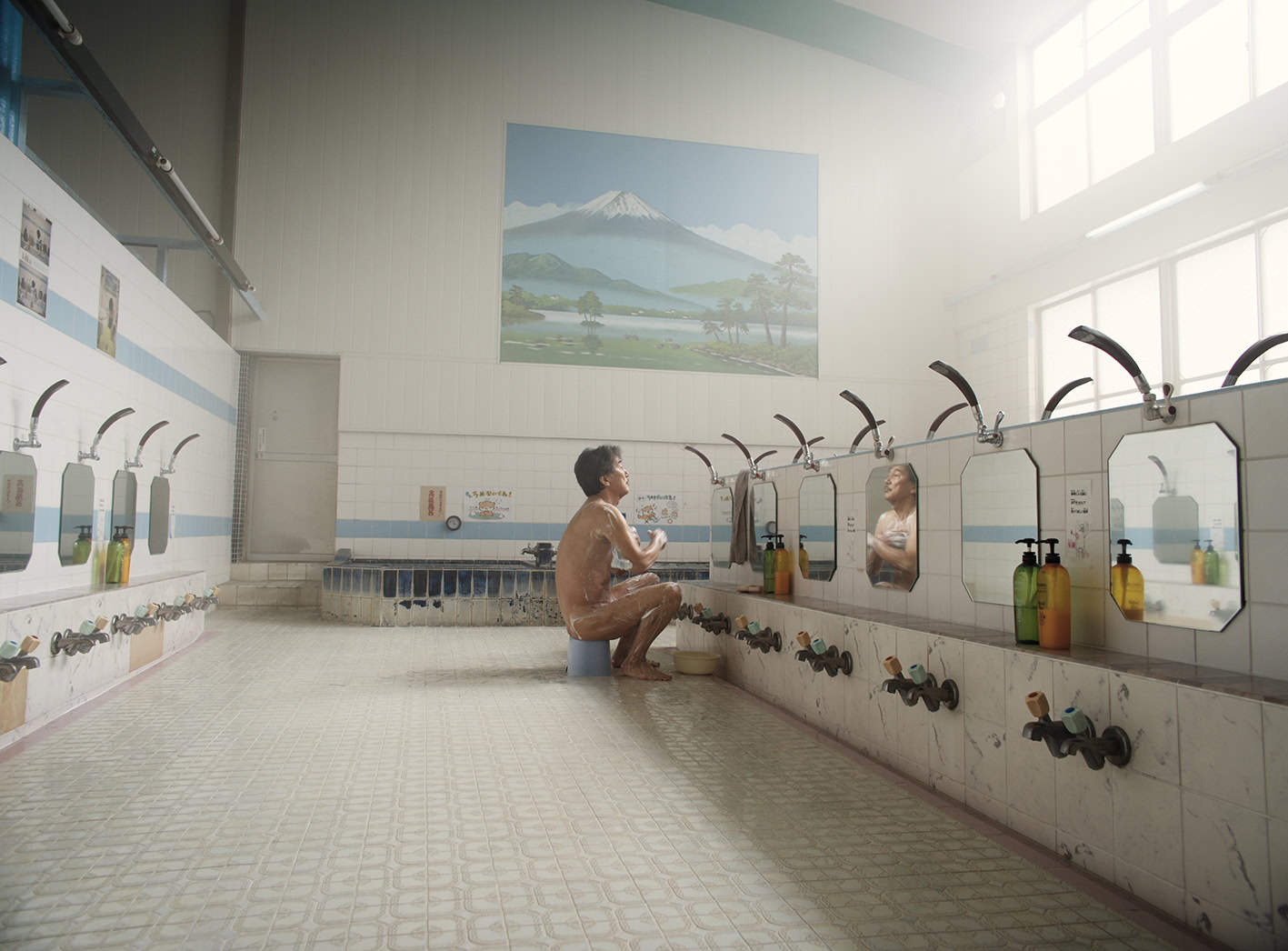Malkit Shoshan, Andrew Herscher, and Daniel Serwer, “Reconstruction and Redestruction: Post-War Antinomies”
Event Description
In times of war, the destruction of the built environment stands out as a profoundly traumatic act of violence against a collective, a nation, a people. “We expect people to die,” writes Croatian journalist Slavenka Drakulic. “A dead woman is one of us – but the bridge is all of us, forever.” However, the destruction of the built environment is not confined to times of war. Dominant powers and neoliberal forces exploit disasters, crises, and shocks to impose new values, narratives, and forms that similarly disrupt the cities and spaces we live in. Especially in post-war environments, reconstruction and “redestruction” are often difficult to disentangle when discussing rebuilding environments that were ruined in war.
In this conversation, Senior Loeb Scholar Malkit Shoshan will discuss the complexities of postwar reconstruction with Andrew Herscher, a professor of architecture at University of Michigan whose work explores the architecture of political violence, migration, and displacement, and Daniel Serwer, a senior fellow at the Johns Hopkins SAIS Center for Transatlantic Relations and professorial lecturer in the Conflict Management Program.
Speakers
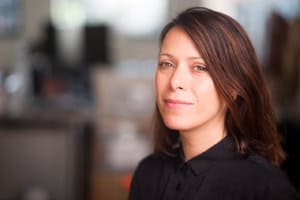
Malkit Shoshan is the 2024-2025 Senior Loeb Scholar at Harvard GSD and a 2024 Resident at The Rockefeller Foundation’s Bellagio Center. She is a designer, researcher, and writer, and founding director of the architecture think tank FAST (Foundation for Achieving Seamless Territory). FAST employs research, advocacy, design, and public art to explore the complex relationships between architecture, urban planning, and human rights.
In 2021, Shoshan was awarded the Silver Lion at the Venice Architecture Biennale for her collaborative project Border Ecologies and the Gaza Strip: Watermelon, Sardines, Crabs, Sand, and Sediment, which is also the subject of her forthcoming book with Amir Qudaih (Mack Books, 2024). Her award-winning books on spatial equity, peace, and conflict include BLUE: The Architecture of UN Peacekeeping Missions (Actar, 2023), Atlas of Conflict: Israel-Palestine (Uitgeverij 010, 2010), Village: One Land, Two Systems and Platform Paradise (Damiani Editore, 2014), Zoo, or the Letter Z, Just After Zionism (NAiM, 2012). Shoshan’s research and design work has been exhibited internationally and featured in prominent newspapers, magazines, and academic journals, including The New York Times, The Guardian, Haaretz, and Harvard Design Magazine.
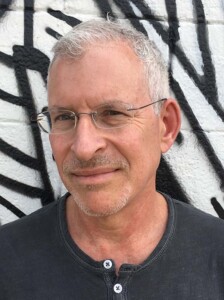
Andrew Herscher’s work endeavors to bring the study of architecture and cities to bear on struggles for justice, democracy, and self-determination across a range of global sites. He is the co-founder of a series of militant research collectives, including Detroit Resists, Settler Colonial City Project, and the We the People of Detroit Community Research Collective. His scholarly work includes Violence Taking Place: The Architecture of the Kosovo Conflict (Stanford University Press, 2010); The Unreal Estate Guide to Detroit (University of Michigan Press, 2012); Displacements: Architecture and Refugee (Sternberg Press, 2017); The Global Shelter Imaginary: IKEA Humanitarianism and Rightless Relief (co-authored with Daniel Bertrand Monk, University of Minnesota Press, 2022); and Under the Campus, the Land: Anishinaabe Futuring, Colonial Non-Memory, and the Origin of the University of Michigan (University of Michigan Press, 2025). He works at the University of Michigan.
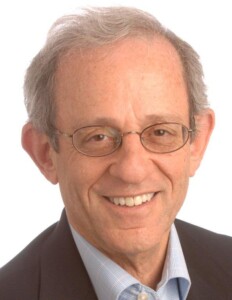
Daniel Serwer is a Senior Fellow at the Foreign Policy Institute of the Johns Hopkins School of Advanced International Studies, where he previously directed the Conflict Management and American Foreign Policy programs. He is also a scholar affiliated with the Middle East Institute. He was Vice President for Centers of Peacebuilding Innovation as well as for Peace and Stability Operations at the United States Institute of Peace and served as Executive Director of the Hamilton/Baker Iraq Study Group. As a Minister-Counselor at the U.S. Department of State, Serwer was a wartime Special Envoy for the Bosnian Federation. He also served as Charge’ d’affaires and Deputy Chief of Mission at U.S. Embassy Rome.
Serwer is the author of From War to Peace in the Balkans, the Middle East, and Ukraine (Palgrave MacMillan 2019), which he is revising for a new edition in 2027. He also wrote Righting the Balance: How You Can Help Protect America (Potomac Books, 2013). His most recent book is Strengthening International Norms: The Case of Radiation Protection (Palgrave MacMillan, 2024).
Serwer holds a Ph.D. and M.A. from Princeton University; M.S. from the University of Chicago; and a B.A. from Haverford College.
Anne Whiston Spirn, “Restoring Nature, Rebuilding Community”
Event Description
What would it mean for a city to be ecologically robust and socially just? What would such a place be like? Through what means might such a vision be accomplished? And how might change be created and sustained? These are not questions to be explored in the abstract. They call for action research, for testing ideas in practice, and engaging with real people in actual places to make discoveries from which principles can be drawn.
For the past four decades, Anne Whiston Spirn’s research and teaching have demonstrated how to combine concerns for environment, poverty, race, social equity, and educational reform, and how university resources can be leveraged to address environmental and social challenges that confound society. These initiatives have resulted in projects and programs in partnership with community residents, and contributed to a revolution in water-quality management, represented by Philadelphia’s landmark, billion-dollar “green” infrastructure project.
Speaker
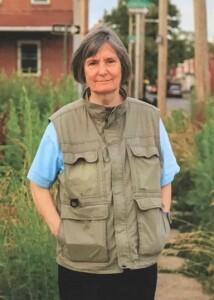
Anne Whiston Spirn is the Cecil and Ida Green Distinguished Professor of Landscape Architecture and Planning at MIT. The American Planning Association named her first book, The Granite Garden: Urban Nature and Human Design (1984), as one of the 100 most important books of the 20th century and credited it with launching the ecological urbanism movement. Since 1987, Spirn has directed the West Philadelphia Landscape Project (WPLP), an action research project whose mission is to restore nature and rebuild community through strategic design, planning, and education programs . Spirn’s second book, The Language of Landscape(1998), argues that landscape is a form of language. She continued to develop the subject of visual literacy and visual thinking in her award-winning book, Daring to Look: Dorothea Lange’s Photographs and Reports from the Field (2008), and The Eye Is a Door: Landscape, Photography, and the Art of Discovery (2014). Prior to MIT, Spirn taught at Harvard University and at the University of Pennsylvania. Spirn’s work has been recognized by many awards, including Japan’s International Cosmos Prize for “contributions to the harmonious coexistence of nature and mankind,” and the National Design Award for Design Mind, for “a visionary who has had a profound impact on design theory, practice, or public awareness.” Spirn’s homepage is a gateway to her work and activities.
Laurie Olin, “First We Read, Then We Write”
Event Description
“First we read, then we write.” — Ralph Waldo Emerson
This richly illustrated talk by Laurie Olin will discuss the stages of influence and reflection that precede and may shape subsequent creative activity. After a brief survey of his own career and encounters with the body of landscape literature, he turns to the flood of books in recent years. After considering their diverse character and purpose, he asks, “Why would a person whose creative drive has been directed to another medium choose to make a book?” He speculates upon the body of landscape architecture literature, its long if unacknowledged traditions and utility, and the possible future(s) of landscape writing, theorizing, and books.
Speaker
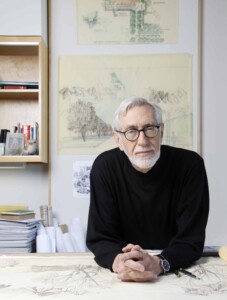
Laurie Olin is a distinguished teacher, author, and one of the most renowned landscape architects practicing today. From vision to realization, he has guided many of OLIN’s signature projects, which span the history of the studio, from the Washington Monument Grounds in Washington, DC, to Bryant Park in New York City. His recent projects include the AIA-award-winning Barnes Foundation in Philadelphia and the Simon and Helen Director Park in Portland, Oregon.
Olin studied civil engineering at the University of Alaska and pursued architecture at the University of Washington, where Richard Haag encouraged him to focus on landscape. He is currently a practice professor of landscape architecture at the University of Pennsylvania, where he has taught for 40 years, and is the former chair of the Department of Landscape Architecture at Harvard University. He is a Fellow of the American Academy of Arts and Sciences, a Fellow of the American Society of Landscape Architects, and a recipient of the 1998 Award in Architecture from the American Academy of Arts and Letters. He is the recipient of the 2012 National Medal of Arts, the highest lifetime achievement award for artists and designers bestowed by the National Endowment for the Arts and the President of the United States. He also holds the 2011 American Society of Landscape Architects Medal, the society’s highest award for a landscape architect.
Theodore Spyropoulos, “Quantum”
Event Description
In a world made increasingly complex by technological advancements and a rapidly changing environment, architect and educator Theodore Spyropoulos asks us to consider global challenges from a new perspective. This reframe moves us from static representational models to collaborative, ever-evolving models and interactions that allow us to see our world anew. Architecture gives us the opportunity to consider how the built environment changes our relationships with one another —humans and non-humans, objects, and the world. As we grapple with ongoing uncertainty and change, Theodore Spyropolous explores the intersections of quantum physics, artificial intelligence, and second-order cybernetics in pursuing a theory of relationality.
Speaker
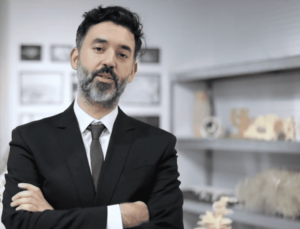
Theodore Spyropoulos is an architect and educator. He is the Director of the Architectural Association’s world-renowned Design Research Lab (AADRL) in London and a resident artist at Somerset House. He previously chaired the AA Graduate School, and was a Professor of Architecture at the Staedelschule in Frankfurt and a visiting Research Fellow at MIT’s Center for Advanced Visual Studies. He co-founded the experimental art, architecture, and design practice Minimaforms with Stephen Spyropoulos. The work of Minimaforms has been acquired by international art and architecture collections, including the FRAC Centre, the Signum Foundation, and the M+ Archigram Archive. His work has been exhibited at MOMA (NYC), the Barbican Centre, the Onassis Cultural Centre, Somerset House, the Detroit Institute of Arts, the Leonardo da Vinci Museum of Science and Technology, and the ICA. He previously worked for the offices of Peter Eisenman and Zaha Hadid. In 2013, the Association for Computer-Aided Design in Architecture awarded him the ACADIA Award of Excellence for his educational work directing the AADRL. He has been published internationally and is the author of Adaptive Ecologies: Correlated Systems of Living (2013), Enabling (2010), and the forthcoming publications Quantum (2024) and Elemental: Phenomena as Technology (2025).
Loeb Fellowship Symposium, “A Round Table – Makers and Users”
Join us for a symposium celebrating the past decade of the Loeb Fellowship and a farewell toast with the outgoing Curator of the Loeb Fellowship, John Peterson
Event Description
A round table has been the symbol and a spatial device of equality, exchange, and dialogue. It is also an apt metaphor for the ethos of the Loeb Fellowship and its commitment to the value of knowledge-sharing, relationships, community, and the impact these have on the agency of our work. A round table is where Loeb Fellows gather in Doebele House for their long-standing invitation dinners, and at the kitchen of the Fellowship’s Curator in Strobel House. Both are places where food and drink are elevated beyond sustenance, where human interaction seeks to change and enrich lives and transform each Fellow’s ability to make a difference in the world. These round tables have been witness to hundreds of hours of engagement by Fellows, faculty, students, friends, families, and guests.
This symposium brings five Loeb Fellows from the 10 years of John Peterson’s curatorship to share stories of how interdependence and collaboration have been instrumental to the success of their work, exemplifying and extending the Loeb Fellowship’s vision and reach. This program positions interdependence as a multiplier in a chain of influences through projects, collaborations, ideas, policies, activism, commitment, and tenacity. It also recognizes that our work and well-being require us to be dependent beings.
The five Loeb storytellers will delve into the value of dialogue, fellowship, and sharing as acts of care that broaden the intellectual and human horizons of the shapers of our environment. These practices not only cultivate networks of support and personal growth but also challenge the conventional values of authorship and exclusivity.
Food, drink, discourse, and fellowship will be the mediums for the program’s intellectual enrichment and the advancement of social good. Join us for this symposium featuring stories of collaborative efforts for social change, a round table discourse, and a cocktail reception with a farewell toast with John Peterson.
Program
Friday, November 15
Harvard GSD, Piper Auditorium
48 Quincy Street, Cambridge, MA 02138
Stories of Interdependence
2:00 p.m. — 4:00 p.m.
The Loeb Fellowship positions collaboration and interdependence as not only enriching but also critical to the work of shaping the built and natural environments. Five Loeb Fellows from John Peterson’s tenure as Curator will share stories of collective and inclusionary practice. Creating within and through community, each will demonstrate the craft of engaging others in generating positive social outcomes.
- Alejandro Echeverri, Loeb Fellow ’16
- Stephanie Hankey, Loeb Fellow ’22
- Andrea Reimer, Loeb Fellow ’19
- Jordan Weber, Loeb Fellow ’22
- Eric Williams, Leob Fellow ’18
Break
4:30 p.m. — 5:00 p.m.
A Round Table: Fellowship as a State of Dependence
5:00 p.m. — 6:00 p.m.
Using a round table as the vehicle of discourse, this “roundtable” discussion will focus on how—both in practice and pedagogy—the breaking down of hierarchies, challenging models of singular authorship, and using truly collaborative engagement are fundamental tools for a relevant design practice.
- John Peterson, Loeb Fellow ’06, Curator of the Loeb Fellowship
- Alejandro Echeverri, Loeb Fellow ’16
- Stephanie Hankey, Loeb Fellow ’22
- Andrea Reimer, Loeb Fellow ’19
- Jordan Weber, Loeb Fellow ’22
- Eric Williams, Leob Fellow ’18
Break
6:00 p.m. — 6:30 p.m.
Closing Presentation and Farewell toast with John Peterson
6:30 p.m. — 7:15 p.m.
Exploring symposium themes of interdependence, dialogue, equity, and leadership—and their embeddedness in the ethos and history of the Loeb Fellowship—John Peterson will reflect on his tenure as Curator and speak to the current state of the design professions as well as pressures to evolve to address the larger, complex social conditions that shape our world.
- John Peterson, Loeb Fellow ’06, Curator of the Loeb Fellowship
Reception
7:15 p.m. — 9:00 p.m.
Speakers

John Peterson, LF ’06, is Curator of the Loeb Fellowship. Peterson is the founder of Public Architecture, a national nonprofit organization based in San Francisco. The organization’s work has been showcased at the Venice Architecture Biennale, MoMA, the Cooper-Hewitt National Design Museum, the Benaki Museum in Athens, and the International Architecture Biennale Rotterdam. Public Architecture’s 1+ program challenges architecture and design firms to pledge a minimum of 1% of their time in pro bono services to nonprofits in need and has attracted participation from over 1500 firms nationwide. Public Architecture’s projects have been covered by national and international media; its ScrapHouse, a house built from only salvaged materials, was the subject of a National Geographic Channel documentary. The organization was a Harvard Business School case study in 2010 and has been supported by a long list of major funders.
Peterson’s work has appeared in several books and publications, including The Resilience Dividend: Being Strong in a World Where Things Go Wrong, The New York Times, Architectural Record, Architect, Metropolis, and the Chronicle of Philanthropy. He has contributed to books such as Expanding Design, Urban Interventions, and The Power of Pro Bono. Peterson led the architectural practice Peterson Architects from 1993 to 2010 and has taught at the University of Texas at Austin and California College of the Arts. A recipient of numerous design and social innovation awards, Peterson has played an important part in defining the concept of “public interest design.” He holds degrees in fine arts and architecture from Rhode Island School of Design and was a Loeb Fellow in 2006.
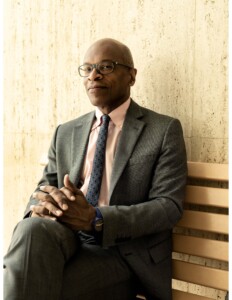
Maurice D. Cox LF’05 is Emma Bloomberg Professor in Residence of Urban Planning and Design at the Harvard Graduate School of Design. Prior to joining the GSD faculty, Cox was Director of Planning and Development for the City of Detroit between 2015-2019 and Commissioner of Planning and Development for the City of Chicago between 2019-2023, where he focused on the adaptive challenges facing contemporary urban revitalization.
In his public sector leadership roles, Cox is known for his design-centered approach to urban planning, incorporating active citizen participation into the public process while simultaneously achieving the highest quality of design excellence. In Detroit, Cox built a new interdisciplinary Planning Department that co-authored a series of awarding-winning neighborhood framework plans to grow Detroit’s population for the first time in 70 years. In Chicago, Cox developed a groundbreaking approach to neighborhood revitalization, INVEST South/West, which seeks to reimagine the public realm and civic life of 10 neighborhoods on the South and West sides by commissioning catalytic mixed-use affordable housing developments to fill vacant gaps in disinvested commercial corridors.
Cox has taught at Syracuse University, the University of Virginia, Tulane University, and the Illinois Institute of Technology, in addition to having held visiting professorships at University of Maryland and Harvard GSD. His pedagogical approach marshals the rigor of academic learning and a pursuit of design excellence to foster productive dialogues among the public and private sectors, universities and non-profits, developers, and the public. The goal is to build non-traditional, mutually beneficial partnerships with communities where the city is a living laboratory for participatory design. This often requires the integration of different voices and cultural influences and necessitates crossing socioeconomic and institutional boundaries into marginalized communities.
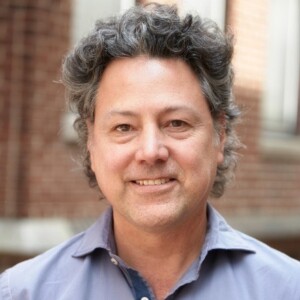
Alejandro Echeverri, LF ’16,
Professor Alejandro Echeverri is an architect, urbanist, and Colombian academic. He is co-founder and director of URBAM, a center for urban and environmental studies at EAFIT University in Medellín, Colombia. He is Distinguished Visiting Professor in Urbanism at TEC Monterrey in Mexico and a Harvard Graduate School of Design (Harvard GSD) Loeb Fellow. Between 2004 and 2008 as Director of EDU The Urban Development Institute, and as the city’s director of urban projects of Medellín, he led the Social Urbanism strategy making the city a blueprint for the future for other distressed cities worldwide.
Echeverri has collaborated as a professor, lecturer, and jury member with various international institutions, and has been a design critic at the Harvard GSD. A lecturer at the LSE Cities Master program at the London School of Economics and Political Science, he has been a researcher and professor at LUB, Barcelona Urban Lab at the ETSAB, and in other academic centers and urban labs worldwide. Echeverri’s experience combines architecture, environmental urban planning processes, and social issues especially in countries with weak political and institutional structures.
Echeverri’s work has earned the Obayashi Prize 2016 in Japan, the 10th Veronica Rudge Green Prize in Urban Design from Harvard GSD in 2013, the Curry Stone Design Prize in 2009, the Colombian National Architectural Award and the Pan-American Biennale in Urban Design, among others. He is a member of multiple international advisory boards of institutions and centers related to urban issues. Echeverri’s intellectual production includes publications and articles focused on architecture, urbanism, and environment, and he is active in design through his studio, which focuses on projects with low environmental impact for tropic regions.

Natalia García Dopazo LF’23 is an Argentinian feminist born in Buenos Aires. She has been the infrastructure of care program coordinator at the National Ministry of Infrastructure and professor of urban planning at the School of Architecture, Design and Urbanism in the University of Buenos Aires.
Natalia is a senior advisor on gender affairs for urban design, management and procedures in projects, public tenders and participatory methodologies for governments and multilateral agencies.
With a background in anthropology, Natalia co-founded the feminist collective City of Desire and the Spatial Cooperative Project and has been an activist for urban rights in vulnerable neighborhoods for the last 10 years. She has written articles and is a popularizer of feminist urbanism in academic and professional settings and local media.
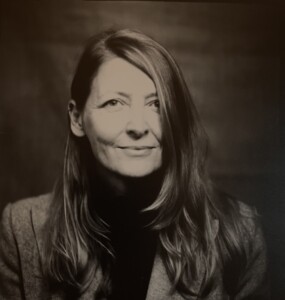
Stephanie Hankey, LF ’22, has pioneered work at the intersection of design, diigtal technologies, social justice, and environmental advocacy, with a career spanning over 25 years. As the co-founder of Tactical Tech in 2003, she served as Executive Director for 18 years, creating impactful, award-winning public engagement initiatives that have reached audiences in more than 70 countries. Stephanie has built expertise in guiding decision-makers on ethics, technology, and societal impact, building the capacity of organisations and insitutions, from working with designers at Google to politicians in the UK House of Lords.
Stephanie’s recognitions include being a 2022 Loeb Fellow, an Ashoka Fellow and a visiting industry associate at Oxford University. She has contributed to high-level panels, including the European expert panel on Digitalisation for Sustainability, and led strategic development for the Ellen MacArthur Foundation’s 2030 vision.
Today, Stephanie continues her work with Tactical Tech, now leading its climate and technology initiatives with a particular focus on Climate and AI. She also holds a dual professorship in the Design School at the University of Applied Sciences Potsdam, serves as an expert on sustainable design for the UK Design Council, and mentors projects within the EU’s New European Bauhaus initiative.
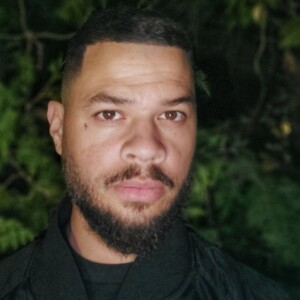
Jordan Weber, LF ’22, is a regenerative land sculptor and environmental activist who works at the cross section of social justice and environmental racism. Most recently, Jordan was commissioned by the Walker Art Center to create an urban farm in North Minneapolis called Prototype for poetry vs. rhetoric (deep roots), which acts as a counter tactic to industrial violence upon biodiverse lands and racially diverse communities. The project was produced in collaboration with North Minneapolis community members during the height of the George Floyd protests in late May 2020. He is currently in residence at the Pulitzer Arts Foundation and Washington University’s Center for the Study of Race, Ethnicity, and Equity and Sam Fox School of Design and Visual Arts. Jordan’s two-year project residency centers on social and environmental justice, incarceration, and healing, with a specific focus on the Close the Workhouse campaign—a collaborative project that is dedicated to the closure of St. Louis’ Medium Security Institute, known locally as the Workhouse.
Awards and fellowships include the Joan Mitchell Award for Sculptors, Creative Capital NYC Award, A Blade of Grass fellowship NYC, Tanne Foundation Award, and the African American Leadership Forum Award.

Eric Williams, LF ’18, is the founder and creative director of the Silver Room, an innovative retail, arts, education and community events space opened in 1997. The Silver Room intersects the worlds of fashion, music and visual art, and acts as a boutique, gallery, and community arts center. Williams is committed to creating spaces and curating events that strengthen communities and fuel positive economic impact.
The Silver Room has hosted a number of large-scale events, most notably the Sound System Block Party, which attracted more than 15,000 attendees in 2016. The 3 day CONNECT Hyde Park Arts Festival, a collaboration with the University of Chicago, activates empty storefronts near the university with pop-up art exhibits and speakers organized by some of Chicago’s leading curators. For the past two decades, Williams has shaped his practice to be responsive to the core needs of the creative urban community he serves. To address the systems that create disenfranchisement, his work provides space, support, and programming designed to foster equity for people of color and other marginalized communities.
During his Loeb Fellowship, Williams will focus on conducting research to create a practical model based on The Silver Room’s success as a for-profit, people centered art and community enterprise. He will leverage the expertise of the Loeb Fellowship community to strengthen his leadership and ability to identify and employ proven best practices that solidify the linkage of art and retail as a successful community and economic development model. Williams’ intention is to implement and replicate his model in the broader community of Chicago and nationwide.
Harvard Design Magazine 52: Instruments of Service
Event Description
Join Guest Editors Elizabeth Bowie Christoforetti and Jacob Reidel in a discussion about Harvard Design Magazine #52: Instruments of Service. At a moment when “design” has become everything—and hence nothing—Issue 52 examines the hidden mechanics and visible output of design practice in order to track the shifting role of designers in society and to gauge the capacity of designers to effect change in a world of mounting crises.
The issue poses a simple question: What do architects actually make and how is this changing?
Issue 52’s exploration is grounded in architecture. In days gone by, architecture was seen as the “mother art” (Frank Lloyd Wright) and as “the ultimate goal of all creative activity” (Walter Gropius’s introduction to his Bauhaus Manifesto), but over the past century it has lost its purchase on such sweeping and grandiose claims to creative primacy and world-building. At the same time, however, architecture remains a ubiquitous point of reference for a wide range of disciplines, practices, and protagonists that influence the design of the things we use and the environments we inhabit—including fields not only directly related to architecture such as landscape architecture, urban planning, and urban design, but also fashion, industrial design, graphic design, and digital design.
The issue’s title, Instruments of Service, carries a double meaning. As defined in standard American Institute of Architects contracts, “Instruments of Service are representations, in any medium of expression now known or later developed, of the tangible and intangible creative work performed by the Architect and the Architect’s consultants under their respective professional services agreements. Instruments of Service may include, without limitation, studies, surveys, models, sketches, drawings, specifications, and other similar materials.” Instruments of service are the instruction manuals that architects—and other designers—make so that others can make something. They define the architect’s relationships with labor, construction, clients, and society. And these relationships—along with the agency of architectural practice—are changing as a growing number of external pressures force instruments of service to change.
Architects and designers can also be seen as instruments of service to society, responsive to a continually shifting set of values. At a fundamental level, the designer’s job is to imagine and articulate a better future. In a time of crisis and competing value systems—market returns, cultural relevance, environmental response, social equity, automation—the role of the designer in society is ever more important and increasingly accountable to divergent interests that call into question the raison d’être of design practice itself.
In the end, what we make is inextricably tied to why and for whom we make it.
Speakers
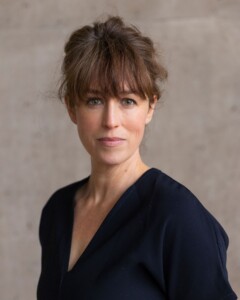
Elizabeth Bowie Christoforetti is assistant professor in practice of architecture at the Harvard Graduate School of Design and the founder and director of Supernormal, a design studio based in Cambridge, MA. Her research, practice, and teaching focus on changing definitions and modes of design practice in the built environment. Her work explores emerging theories, methods, and the technological building blocks that enable design practice to confront the overlapping and conflicting imperatives of our time: the climate crisis, artificial intelligence, and market-driven urbanism.
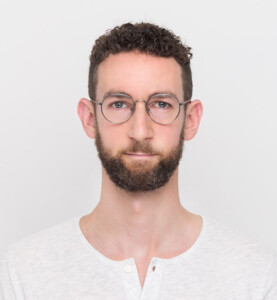
Jacob Reidel examines and advances the purpose, value, and potential of architectural practice. His work—spanning practice, research, publication, and teaching—is grounded in the conviction that while architecture and the people who create physical spaces have existed for millennia, the practice and the profession of architecture are comparatively new and unstable frameworks, subject to reconsideration and redesign. He is assistant professor in practice of architecture at the Harvard Graduate School of Design, a licensed architect in New York where he co-chairs the AIA New York Future of Practice Committee, and is co-founder and editor of CLOG.
Bas Smets, “Changing Climates”
Event Description
The exhibition Changing Climates explores how built environments can be transformed into urban ecologies. Producing an enhanced micro-climate, each of these ecologies has the capacity to augment the resilience of the urban condition under the challenges of the climate crisis.
A city can be understood as the juxtaposition of many artificial micro-climates. Buildings change wind patterns and sunlight exposure, while streetscapes modify runoff and soil permeability. For each man-made micro-climate, a comparable natural condition can be found. The study of its living organisms informs the introduction of vegetation as an agent of change into the artificial environment.
The city thus becomes a second nature and an active laboratory. Similar to plants that have gradually transformed their environment, and life in general that has been shaping the form of the earth, these urban ecologies have the force to transform the very nature of the city into a living organism. The built environment becomes an intelligent interface between an uncertain meteorology and an underused geology. Positioned between the above and the below, cities develop into a true zone of life.
In this lecture, Bas Smets will explore how these new urban ecologies can be conceived and constructed through a selection of projects featured in the exhibition. Varying in both scale and program, these projects show how to develop solution-based design through science-based research.
Gary Hilderbrand, Anita Berrizbeitia, and Alex Wall will join Smets on stage for a conversation after the lecture, and a reception will follow in the Druker Design Gallery.
Speaker
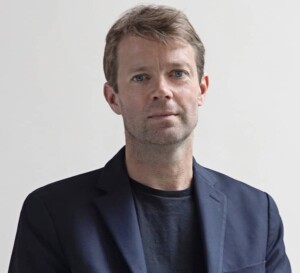
Bas Smets has a background in landscape architecture, civil engineering, and architecture. He founded his firm in Brussels in 2007 and has since completed more than 50 projects internationally with his team of 25 architects and landscape architects.
His realized projects include the Parc des Ateliers in Arles, the park of Thurn & Taxis in Brussels, the Mandrake Hotel in London, and the Himara Waterfront in Albania. In 2022, he won the international competition for public spaces around the Notre-Dame Cathedral in Paris.
Each of these projects is part of interrelated research into the possible role and ambition of landscape projects. The aim is to invent “augmented landscapes” by using the logic of nature. These augmented landscapes produce a new microclimate and, thus, new atmospheres. The collaboration with artists and scientists takes a central role in this research. He has received many awards for his unique approach, including the Aga Khan Award for Architecture in 2019.
Bas Smets was appointed Professor in Practice at the Harvard GSD in 2023. Through his design studio, he explores new ways to transform the city into an urban ecology capable of producing cooling microclimates to counter climate change.
Sean Godsell, “Your Feet Against My Feet: Upside-Down Architecture”
Event Description
“…never have three of the primordial elements been so threatened as they are today: the air killed by pollution and carbon dioxide, the water, which is contaminated on the one hand and getting scarcer and scarcer on the other. The only winner is fire, in the form of a heat that is parching the earth, upsetting the seasons and, by melting the glaciers, inviting the sea to invade it.”
—Umberto Eco, “Beautiful Flame”
Australia is hot and dry. Over 70% of the country is arid or semi-arid and sparsely populated. We are basically a giant desert about the same geographical size as the mainland US but with approximately the same population as greater Los Angeles. Despite our vast mineral wealth, water remains our most precious commodity, and fire and floods are our constant concern. For us, “the bush” is a mystical, mythical place. Australians know of the Outback, the Never Never, the Dreamtime, and the Songlines of our Indigenous communities. Here, “the bush” mediates between our colonial coastalism and the endless emptiness of the rest. These are dreamy, half-real skies.
Speaker
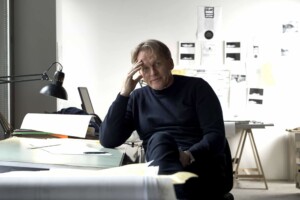
Sean Godsell was born in Melbourne, Australia in 1960. He graduated with First Class Honours from The University of Melbourne in 1984. He spent much of 1985 traveling in Japan and Europe and worked in London from 1986 to 1988 for Sir Denys Lasdun. In 1994, he formed Sean Godsell Architects. His work has been published in the world’s leading Architectural journals, and he has lectured and exhibited in the USA, UK, China, Japan, India, France, Finland, Germany, Italy, and New Zealand as well as across Australia.
In July 2002, the influential English design magazine Wallpaper* listed him as one of ten people destined to “change the way we live.” His Future Shack housing prototype was exhibited at the Smithsonian’s Cooper Hewitt Design Museum in New York in 2005 and the facade prototype of the RMIT Design Hub is on permanent display at the V+A Museum in London.
He has received numerous local and international awards, including the 2022 Australian Institute of Architects Gold Medal. His work has been published in the monographs Sean Godsell (Electa, 2005), Sean Godsell: Tough Subtlety (El Croquis, 2013), and Sean Godsell: Houses (Thames and Hudson, 2018). In 2013 and 2014, he was visiting professor at the IUAV in Venice. He is adjunct professor of architecture at Deakin University.
Symposium in Honor of Giuliana Bruno: With Keynotes by Isaac Julien and Emanuele Coccia
Event Description
Scholars and artists working at the forefront of visual culture and design come together for this symposium inspired by Giuliana Bruno’s career researching the intersections of the visual arts, architecture, film, and media. Bruno is the Emmet Blakeney Gleason Professor of Visual and Environmental Studies, Faculty of Arts and Sciences, and a GSD Faculty Affiliate.
Registration is required to attend the keynote event at the Carpenter Center for the Visual Arts.
Update: The keynote event at the Carpenter Center for the Visual Arts is now at capacity. Panel discussions in Piper Auditorium will be livestreamed, however the keynote event will not be. A recording of the keynote will be posted on this page in the days following the event.
Program
Thursday, November 21
Harvard GSD, Piper Auditorium
48 Quincy Street, Cambridge, MA 02138
Carpenter Center for the Visual Arts
24 Quincy Street, Cambridge, MA 02138
Panels at the Harvard Graduate School of Design
Panel 1: Elements of Media Matter
1:00 p.m. — 2:30 p.m.
Moderated by Samira Daneshvar, Pre-Doctoral Fellow, Max Planck Institute for the History of Science
- On Bare Metal, Zach Furste, Lecturer in New Media and Digital Culture, University of Amsterdam
- For Whom the Air Waves, Olivia Naoise Crough, PhD candidate, Harvard University
- The Shape of Time, Xavier Nueno, Post-Doctoral Researcher, École Polytechnique Fédérale de Lausanne (EPFL)
Panel 2: Sensing Place, Thinking Space
3:00 p.m. — 4:30 p.m.
Moderated by Emilio Vavarella, Assistant Professor of Media and Film Studies, Skidmore College
- Classroom Lessons, Dan D’Amore, Post-Doctoral Researcher, Filmuniversität Babelsberg
- Landscape Portraits, Becca Voelcker, Lecturer in Fine Art Critical Studies, Goldsmiths, University of London
- Predation: More (and Less) than Human Bodies, Martín Cobas Sosa, Professor of Architectural History and Design, Facultad de Arquitectura, Diseño y Urbanismo, Universidad de la República, Uruguay
- Atmospheric Thinking and Sentipensar, Yazmín M. Crespo Claudio, Assistant Professor of Architecture, Affiliate Faculty, Center for Latin American and Caribbean Studies, University of Illinois Urbana-Champaign
Reception
4:30 p.m. — 5:30 p.m.
Keynote Event at the Carpenter Center*
6:00 p.m. — 8:00 p.m.
*Registration required through this link.
Introduction
- Sarah Whiting, Dean and Josep Lluís Sert Professor of Architecture, GSD.
Keynotes
- Isaac Julien, Artist, Filmmaker, Distinguished Professor of the Arts, University of California Santa Cruz
- Emanuele Coccia, Philosopher, Author, Curator, Associate Professor at the École des Hautes Études en Sciences Sociales (EHESS)
Discussion
Moderated by Ewa Lajer-Burcharth, William Dorr Boardman Professor of Fine Arts, HAA
- Giuliana Bruno
- Isaac Julien
- Emanuele Coccia
Keynote Speakers
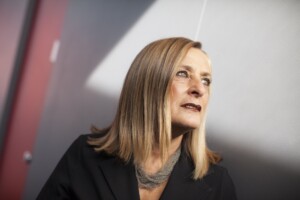
Giuliana Bruno is Emmet Blakeney Gleason Professor of Visual and Environmental Studies, Faculty of Arts and Sciences and a GSD Faculty Affiliate. She is internationally known for her research on intersections of the visual arts, architecture, the environment and media. Bruno has published eight award-winning books and two hundred essays, translated in fifteen languages. Her books include Atmospheres of Projection: Environmentality in Art and Screen Media; Surface: Matters of Aesthetics, Materiality, and Media; Streetwalking on a Ruined Map, winner of the Society for Cinema and Media Studies book award; Public Intimacy: Architecture and the Visual Arts; and Atlas of Emotion: Journeys in Art, Architecture and Film, winner of the Kraszna-Krausz prize for best moving image book and named by the Guardian among its Books of the Year. Forthcoming is her co-authored book Isaac Julien. Lina Bo Bardi—A Marvellous Entanglement. She has been honored with a Doctorate honoris causa.
Isaac Julien is a critically acclaimed British artist and filmmaker, who has exhibited his work internationally in museums and art biennials for over four decades. At the University of California Santa Cruz, he is Distinguished Professor of the Arts. His most recent multiscreen installations include Lina Bo Bardi – A Marvellous Entanglement; Lessons of the Hour – Frederick Douglass; and Once Again… Statues Never Die. In 2023, Tate Britain, London, organized the career-length retrospective Isaac Julien: What Freedom Is to Me, which has since traveled to the Bonnefanten Museum, Maastricht, and the Kunstsammlung Nordrhein-Westfalen (K21), Düsseldorf. In 2017, the Royal Academy of Arts, London, awarded Julien its Charles Wollaston Award. He received the 2022 Kaiserring Goslar Award for distinguished achievement by an international contemporary artist.
Emanuele Coccia is a renowned philosopher, who writes and curates exhibitions on the arts, the environment, design, and fashion. He teaches at the École des Hautes Études en Sciences Sociales (EHESS) in Paris, and has been a visiting professor at the universities of Tokyo, Buenos Aires, Columbia and Harvard. Coccia is the author of La Vie sensible, The Life of Plants, Métamorphoses, and Philosophie de la maison. He recently participated in the making of animated videos, such as Quercus (2020, with Formafantasma), Heaven in Matter (2021, with Faye Formisano) and The Portal of Mysteries (2022, with Dotdotdot). In 2019 he took part in the Trees exhibition held at the Cartier Foundation for Contemporary Art in Paris, and has edited the catalogue for the 23rd Triennale di Milano on art and design, Unknown Unknowns: An Introduction to Mysteries. He is working alongside Alessandro Michele, Creative Director of Gucci, on a publication on the relationships between fashion and philosophy.
This event is co-presented by the Department of Art, Film, and Visual Studies, Carpenter Center for the Visual Arts, Harvard Graduate School of Design, and the Department of History of Art and Architecture.
Perfect Days (2023), A Film by Wim Wenders
Event Description
This event will feature an introduction by Chris Reed and Laila Seewang, instructors of the GSD Course, FLUSH: Waste and Intimacy in Berlin’s Civic Realm.
Hirayama is content with his life as a toilet cleaner in Tokyo. Outside of his structured routine, he cherishes music on cassette tapes, books, and taking photos of trees. Through unexpected encounters, he reflects on finding beauty in the world.
Directed by Wim Wenders (Japan, Germany, 2023, 123 min.)
Screenplay by Wenders and Takuma Takasaki
Japanese with English subtitles

